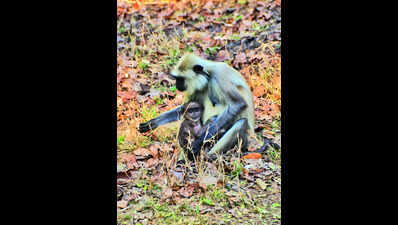ARTICLE AD BOX

The disease typically affects people living near forests in Goa, but also tourists who visit the forests for treks etc may be at risk. Infections mainly happen between Jan and March when tick activity peaks.KFD symptoms typically appear within a week of a tick bite, including high fever and body aches, with severe cases potentially becoming life-threatening. Prevention measures include wearing protective clothing such as long sleeves, full-length pants, and closed shoes when entering forests. Applying tick repellents on exposed skin provides additional protection.Visitors should stick to cleared paths and avoid contact with dense vegetation.
Dead wildlife should not be touched, and forest officials should be notified if any are encountered.After forest visits, individuals should thoroughly check their bodies for ticks, followed by bathing and washing clothes. Medical attention should be sought if symptoms like fever, tiredness, or weakness develop within two weeks of forest exposure.The One Health approach, celebrated globally on Nov 3, recognises the interconnected nature of human, animal, and environmental health and the need for collaboration of professionals of these fields in addressing diseases like KFD.
The One Health & Agroecology Project, in collaboration between Indian and German govts, under the Union environment ministry of India, brings together various state departments including the Goa state biodiversity board, environment and climate change, forest, animal husbandry and veterinary services, and health services.The project focuses on strengthening collaboration between departments, increasing community awareness, and promoting measures for disease prevention and outbreak response.“In Goa, we have involved biodiversity management committees from Sattari, village panchayat-level one-health groups from Sattari, in dealing with KFD at the grassroots-level. Peer-learning visits were instrumental in strengthening the collaboration between departments at state level. Working on all levels will enable us to be better prepared to deal with future challenges in zoonotic diseases and to keep everyone safe,” said Pradip Sarmokadam, member secretary of the Goa State Biodiversity Board.As KFD season begins in Goa, tourists can protect themselves by staying informed and following recommended precautions while exploring the region’s natural areas.(Contributed by Dr Michelle Fernandes, Goa State Climate Change Cell of Goa State Biodiversity Board, and Angela Schug, Deutsche Gesellschaft fur Internationale Zusammenarbeit – GIZ)

 14 hours ago
5
14 hours ago
5








 English (US) ·
English (US) ·